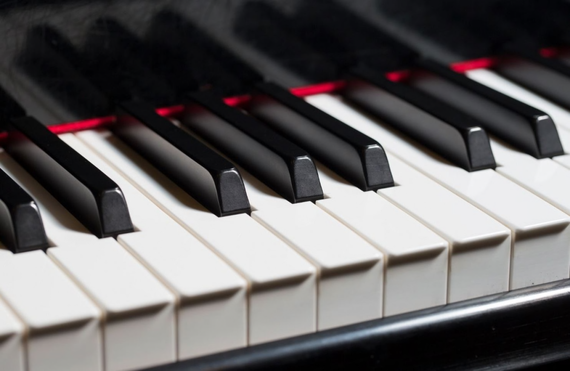
Originally published in Washington Post (20 January 2016)
History sparkles with stories of musicians overcoming illness, impairment and adversity. Beethoven composed his "Ninth Symphony" while deaf. Ray Charles performed blind. Itzhak Perlman plays through polio. Watch "American Idol" this season and you'll hear tearjerking tales of contestants beating herculean odds.
These kinds of stories are so popular that activists and scholars have coined the term "supercrip" to describe them. Colloquially, we might call it "inspiration porn."
Unfortunately, they obscure an important truth: Sometimes, suffering doesn't make us better artists. And that's okay. Acknowledging this un-glamorous fact may actually yield wisdom of a different stripe, wisdom about what it means to be wounded and fallible, yet unapologetically human.
I understand this truth firsthand. I'm a music professor at Dartmouth College. Until recently, I'd never gone a day without playing the piano. I started lessons at age 4 and gave yearly recitals all the way through college.
In my music history graduate school program, I put together a series of improv concerts: The audience would call out themes (anything from Bach to Beyoncé) and I'd weave their recommendations into real-time mash-ups. At these performances, the austere etiquette of classical music went out the window. Participants would gleefully shout, "Flight of the Bumblebee" or "Bohemian Rhapsody" or "that theme from 'Star Wars' ... no, no, the other one!" Occasionally, I'd hit wrong notes or overdo a clichéd chord progression. But it was my favorite way to play. Electric, collaborative, alive.
Then in 2013, while I was a post-doctoral fellow, I was besieged by chronic abdominal pain. The pain came daily and could spike into magnitudes that caused me to black out, hallucinate or lose capacity for speech. After a long string of misdiagnoses (one of which led to an unnecessary gallbladder removal), doctors landed on the possibility of Abdominal Cutaneous Nerve Entrapment Syndrome. It's a rare condition that involves nerves firing pathologically in the layers of muscle and fat surrounding the stomach.
Some days, I couldn't get out of bed, much less sleep or eat. The world shrunk to a small and ugly place, its stingy borders tantamount to my apartment walls. Besides seeking out pain clinics for medications and injections, I studied mindfulness techniques from a cognitive behavioral therapist, who told me that I could still "live a beautiful life," even with mysterious chronic pain.
But during actual excruciating moments, reclaiming beauty struck me as an impossibility. That was particularly true of music, something I'd often turned to in past times of loneliness or heartbreak. With the onset of chronic neuropathy, however, music couldn't touch my pain in the least. Listening to graceful Chopin or sultry Adele or the "Lion King" soundtrack didn't help when blood was pounding through my head, or when a voice of despair inside me was whispering that no relief would ever come.
Playing proved even more challenging. It's difficult to sit on a hard piano bench and impossible to concentrate. My fingers became disobedient and my run-throughs of even easy repertoire ended up sounding disorderly. Passage-work was broken, and not in some gorgeously salvageable way. There was nothing romantic or radical about playing through anguish. As much as I would've hoped to find some inspiration in pain, it hasn't panned out. No overcoming narrative, no virtuosic courage. But it wasn't for lack of trying.
My inability to translate suffering into artistry has made me doubt, among other things, how much I care about music -- a strange rabbit hole for a music professor and lifelong musician. For if I loved music enough, shouldn't music sometimes be enough to comfort me? Or, to frame this as the three-word inquiry at the heart of any difficult relationship: Is love enough?
As much as I would've hoped otherwise, music wasn't. It was just one more thing excised from my daily activities, one more broken luxury in a life falling silent. The more I've felt pressured to rekindle my love for music, the more dejected I've become in failing to do so.
It's marvelous, to be sure, when music therapy works, and I have nothing but admiration for artists who play and dance through disability or agony. It's important to believe in heroes and hear their hopeful songs. It's no less important, however, to relate and listen to the abundant stories that diverge from the happy overcoming tales that pervade our media. Because inspiration porn -- like any porn -- isn't always grounded in reality, instead propping up stratospheric standards of beauty, stamina and narrative intrigue.
Not everyone gets to be a hero. Some people barely manage to hold on. So from time to time, let's tell certain illness and disability stories as they are -- even if they don't come with the superhuman protagonists or stirring soundtracks we so crave.